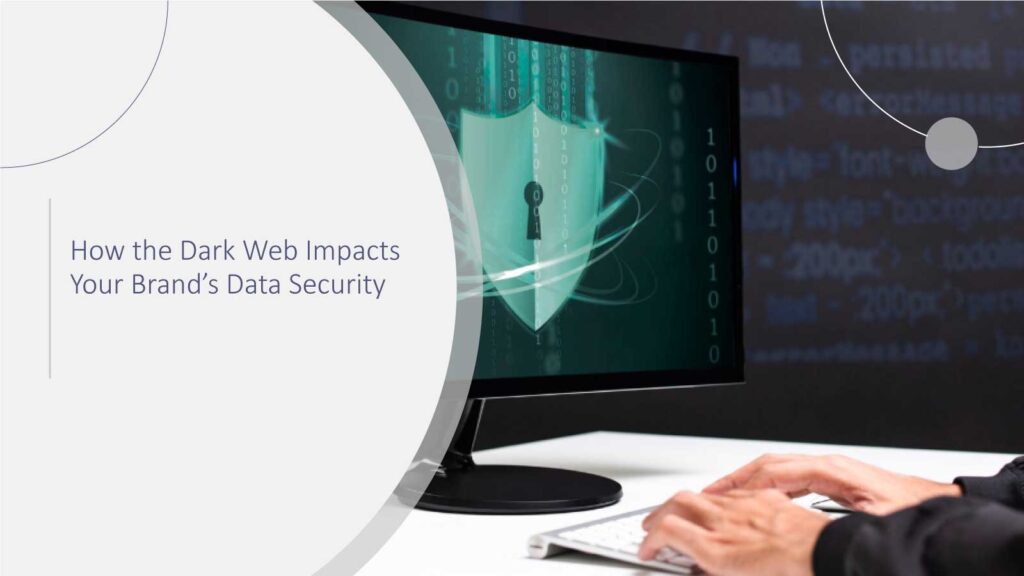In the interconnected world of today’s digital technology, the dark web does not remain a non-existent or abstract threat that is beyond one’s reach, but is an actual threat to any organization that manages sensitive data. Whether it is a small startup or a multinational enterprise, the reputation of your company, customer loyalty, and financial stability can all be at risk if your data joins these secret recesses of cyberspace.
But what exactly is the dark web, and why should it matter to your company? The explanation is simple.
Understanding the Dark Web
The dark web refers to those parts of the internet that cannot be accessed using standard search engines like Google or Bing. You can only get in with special software like Tor, which conceals the identity of users. Though it can be a haven for whistleblowers and privacy-loving people, it is still a place where hackers sell stolen data, credentials, and hacking tools.
For corporations, this hidden world is more than an intriguing thing to look at – it is a potential disclosure source. If the dark web is where your sensitive data ends up, then you may deal with the effects that may go far beyond your brand and be difficult to undo.
According to IBM’s 2024 Cost of a Data Breach Report, 51% of breaches now involve credentials available on the dark web, with the global average cost of a breach reaching $4.88 million.
How the Dark Web Threatens Brand Data
1. Data Exposure
Data breaches usually lead to the appearance of data on the dark web. To illustrate, Discord went through a hacking incident in 2025 wherein a third-party service unintentionally released government ID photos of approximately 70,000 users. Likewise, Qantas was the victim of a cyberattack that resulted in the extraction of personal data of 5 million customers, such as email addresses, phone numbers, and frequent flyer information, giving hackers access to sensitive customer information.
The point is: Exposure of your data is not only a breach, but also an open doorway to fraud, phishing, identity theft, and so on.
2. Higher Cyberattack Risk
If your company data is circulating on the dark web, then the level of exposure to the risks of cyberattacks will be high. Cyber attackers commonly use leaked data to launch targeted attacks such as phishing emails or credential stuffing. In fact, the dark web becomes a playbook for attackers to exploit your business. Studies even confirm the relationship between dark web activity connected to an organization and the likelihood of that organization getting hit by cyber incidents. Cybersecurity Outlook 2025 found that organizations exposed on the dark web are 3.5 times more likely to experience a repeat cyber incident within 12 months.
3. Reputation and Trust
Think of a scenario where a client finds out that their data is being sold on the internet by your company. Naturally, your company’s relationship with that customer will be affected long after the technical vulnerabilities have been repaired. The leaks that come to light through the dark web make it very difficult to maintain trust, especially at a time when the demand for openness and rigorous cyber defense measures from consumers and partners is alive.
4. Financial Implications
At present, the chain reaction of a data breach is no longer confined only to the realm of incident response. Besides regulatory fines, legal fees, remediation costs, and insurance premiums that are on the rise, there are also other consequences that organizations could incur.
Moreover, there are indirect costs which, under no circumstances, should be underestimated, such as lost clients, delayed deals, or the extra work that is required to regain the customers’ trust. The financial trouble related to just one data breach can spiral out of control and turn into a nightmare in the very shortest of time. Research estimates that by 2026, the financial impact of cyberattacks originating from dark web exposure will surpass $10.5 trillion annually, making cybercrime more profitable than the global trade in illegal drugs.
Practical Steps to Protect Your Brand
Though the dark web situation looks like an alarm about the disaster, your company still gets to save itself by implementing preventive measures that lower the risk:
Dark Web Monitoring: Invest in the tools that stealthily scan the dark web marketplaces and forums for your company’s data. The earlier a breach is detected, the better it will be.
Employee Awareness: Phishing is the primary channel through which attackers gain access to their toolkits. Communication training gives employees the skills required to identify and avoid phishing scam emails.
Strong Cybersecurity Measures: Data encryption should be the foundation of data security, together with multi-factor authentication, always up-to-date software, and so on.
Vendor Oversight: The adoption of third-party services might endanger the security of your system. Make sure your partners are adhering to the strictest security guidelines.
Alternatively, consider it from this perspective: your data equals the treasure chest. The dark web, however, swarms with treasure hunters who may not be your friends. The most effective protection is a securely locked chest, staff who are always vigilant, and a watchful eye on what is happening around.
Conclusion
Actually, the dark web is not all that easy to access, but its impact on the data security of your brand is not zero. The threats are there, ranging from data theft of customers to the company operations that are sabotaged, but they are manageable. With the help of dark web intelligence and secure implementations of safety measures, your organization will be secure, and you will be able to garner the trust of customers, partners, and other stakeholders.
FAQs
1. What is the dark web?
The dark web is the portion of the internet that normal browsers can’t access, and only a few specific tools make it accessible. Typically, dark web users are the ones involved in illegal activities such as the sale of hacked data, etc.
2. How does data get on the dark web?
Hacked, leaked, or released by employees, the data ends up on the dark web. If such data are still relevant, they may be sold or exchanged at illegal markets.
3. What kinds of data are targeted?
Users on the dark web search for e-mails, phone numbers, payment data, as well as business data, including usernames and company secrets. PII (Personally Identifiable Information) is the most sought-after by dark web users, thus such data is the one required.
4. Can businesses monitor dark web activity?
Definitely. Several monitoring tools can notify you if your business data has been found on the dark web, which is the very first step in taking control over the situation and implementing the solutions.
5. How can companies protect themselves?
Without a doubt, the most effective ways would be a strong cybersecurity infrastructure, watching out for leaks on the dark web, security threat preparation for your staff, and having your suppliers comply with data protection standards.
For deeper insights on agentic AI governance, identity controls, and real‑world breach data, visit Cyber Tech Insights.
To participate in upcoming interviews, please reach out to our CyberTech Media Room at sudipto@intentamplify.com.








